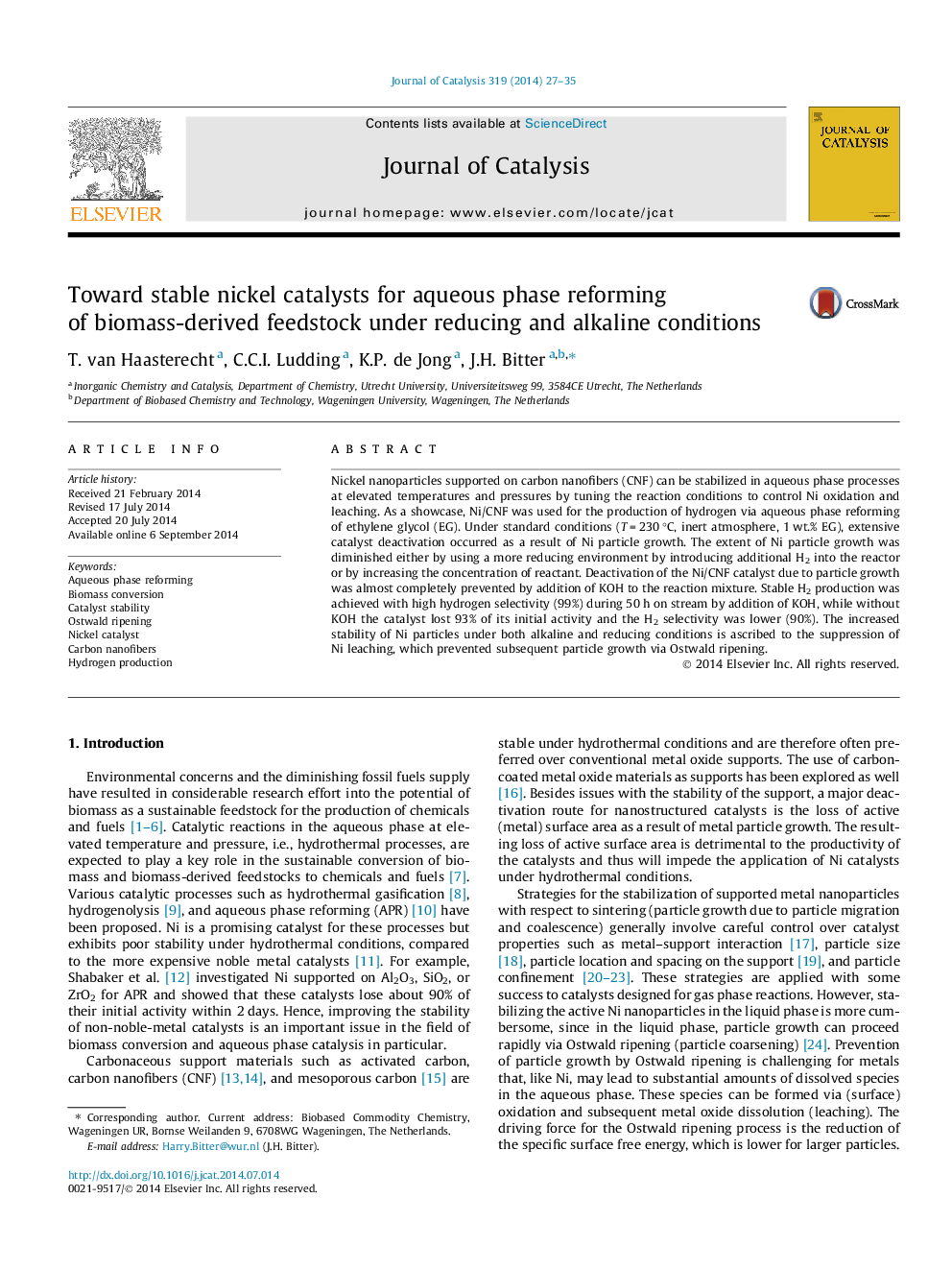| Article ID | Journal | Published Year | Pages | File Type |
|---|---|---|---|---|
| 60991 | Journal of Catalysis | 2014 | 9 Pages |
•Carbon nanofiber supported nickel nanoparticles were used ascatalyst for the aqueous phase reforming of ethylene glycol.•The stability of Ni/CNF was investigated as function of the applied reaction conditions.•Nickel particle growth wassuppressedat higher ethylene glycol concentrations andhydrogen pressure.•Above pH 8 nickel particle growth was prevented, resulting in stable catalytic activity.•The increased stability is ascribed to suppression of leaching and subsequent particle growth via Ostwald ripening.
Nickel nanoparticles supported on carbon nanofibers (CNF) can be stabilized in aqueous phase processes at elevated temperatures and pressures by tuning the reaction conditions to control Ni oxidation and leaching. As a showcase, Ni/CNF was used for the production of hydrogen via aqueous phase reforming of ethylene glycol (EG). Under standard conditions (T = 230 °C, inert atmosphere, 1 wt.% EG), extensive catalyst deactivation occurred as a result of Ni particle growth. The extent of Ni particle growth was diminished either by using a more reducing environment by introducing additional H2 into the reactor or by increasing the concentration of reactant. Deactivation of the Ni/CNF catalyst due to particle growth was almost completely prevented by addition of KOH to the reaction mixture. Stable H2 production was achieved with high hydrogen selectivity (99%) during 50 h on stream by addition of KOH, while without KOH the catalyst lost 93% of its initial activity and the H2 selectivity was lower (90%). The increased stability of Ni particles under both alkaline and reducing conditions is ascribed to the suppression of Ni leaching, which prevented subsequent particle growth via Ostwald ripening.
Graphical abstractFigure optionsDownload full-size imageDownload high-quality image (66 K)Download as PowerPoint slide
